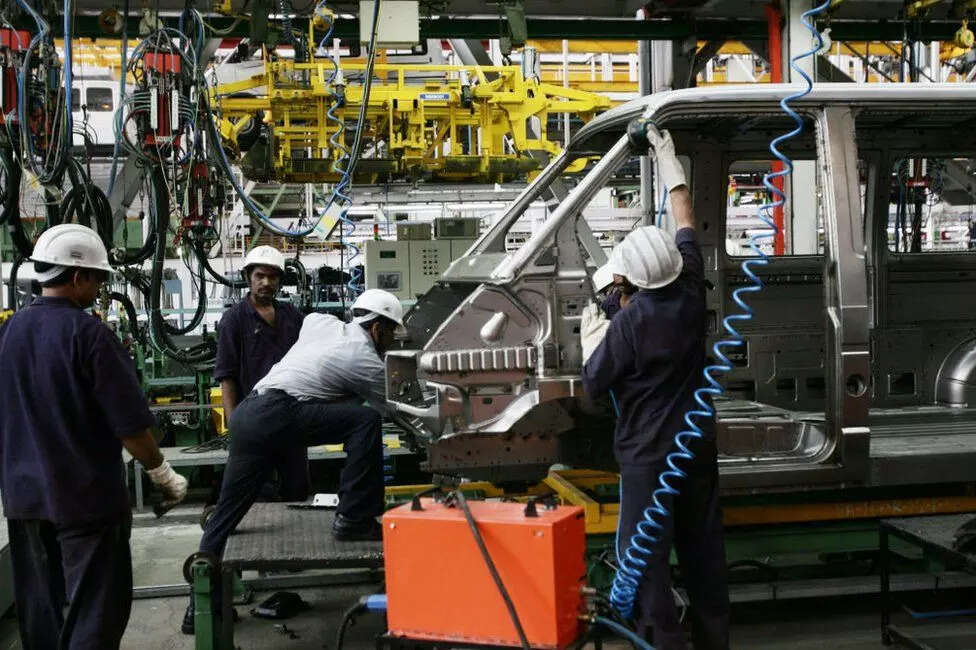
Close on the heels of FoxConn making the India Electric Vehicle (EV) space its playground, a smaller domestic hexagenarian inked its largest EV deal to kick off 2023. This was Chennai-based Sundram Fasteners which won a USD 250m contract for supply of sub-assemblies to the EV platform of a global automaker.
FoxConn – the Taiwanese giant that runs the world’s largest iPhone factory, is eyeing India to set up its EV factory before the end of the year. R&D is at the core of FoxConn which has 85,000 patents to its name. On that note, the world’s largest EV maker, the China-based Build Your Dreams already has an Indian technology partnership – it supplies the tech to Hyderabad-based electric bus maker Olectra Greentech.
In the automotive space, all incumbent OEMs have in-house assembly capabilities. What they lack is the agility to disturb the operations of large plants, for low production volumes. EV makers in India are challenged in planning their in house investment runway for Electric Vehicle Supply Equipment (EVSE) – adoption at the consumer end is slow in this cost conscious market. A new in house assembly unit poses its own set of financial and manufacturing risks.
This uncertainty does not allow EVSE OEMs to do long term planning. Outsourcing the job to specialist contract manufacturers (CM) like FoxConn is therefore coming up in a large way in this jurisdiction.
Contract manufacturing as a model takes the best of both worlds – specialist expertise and time-incentives of the contract manufacturer (CM) and the scale of the OEM. Even if OEMs sell much fewer units than would be necessary to generate significant economies of scale, they can cut their direct expenses. And divert funds towards R&D, sales and marketing.
OEMs can significantly increase their manufacturing workforce and production capacity through CMs, minus the liability. In fact this flexibility extends to quick product switches as well, weeding out the ones with lesser uptake.
Global trends reveal the emergence of 3 models to handle contract manufacturing. First model being a straight-forward approach of establishing a dedicated unit, supported by contract engineering capability e.g. Magna Steyr. The second being that of offering OEMs manufacturing capacity and expertise otherwise used for in-house needs e.g. China’s JAC Motors.
Third model being an innovative approach of electric skateboard which involves designing and manufacture vehicles to clients’ specifications. The electric “rolling chassis” becoming a branded foundation on which use case- and brand-specific “top hats” are attached e.g. UK based Arrival. These manufacturing approaches have emerged at a time when the EV mobility sector is undergoing a radical transformation.
Even so, CM is riddled with challenges such as compromising the OEMs quality checks, supply delays where the CM doesn’t exclusively work with one OEM, unwanted proprietary and competitive information disclosures, and such.
Watertight paperwork enshrining the rights and duties of the OEMs and the CMs is, therefore, imperative. A variety of commercial relationships exist today between OEMs and CMs. They include component manufacturing, private label manufacturing, CM for use of equipment and facility or assembly, among others. An exhaustive contract would essentially cover the entire legal and commercial relationship between the OEM and the CM.
Contracts defining such relationship test against increasingly higher thresholds on defining the production process and the precise role of each party, consequences for performance delays, product specifications and disclosures.
Specific clarity is needed on rights and obligations surrounding aspects of design and use of the CM’s own equipment, control mechanisms for expanding scope of contractual roles, supply chain management provisions such as provisions for collaboration and visibility on component availability and quality, transportation and logistics and inventory management, real-time visibility tools, agreement on contingency action plan and regular risk assessments.
The agreement and the purchase orders executed between the parties should also state the requirements and specifications of the OEM including but not limited to quality, standards, detailing, packaging, mode of delivery or supply chain structures, damage control mechanism, insurance responsibilities etc.
And not least important is the attention to protection of sensitive and competitive information through non-disclosure agreements and IPR protections, given the nature of CM engagement is potentially intrusive. Not to forget, agreeing to a dispute mechanism to define not just the manner and forum of handling the dispute (venue, seat, governing laws), but also the approach to minimise business disruption during the subsistence of a dispute, if it arises.
Contract manufacturing in the Indian EV sector will thrive in the months to come, if with some foresight on efficient manufacturing strategies and management of supply chain challenges.

